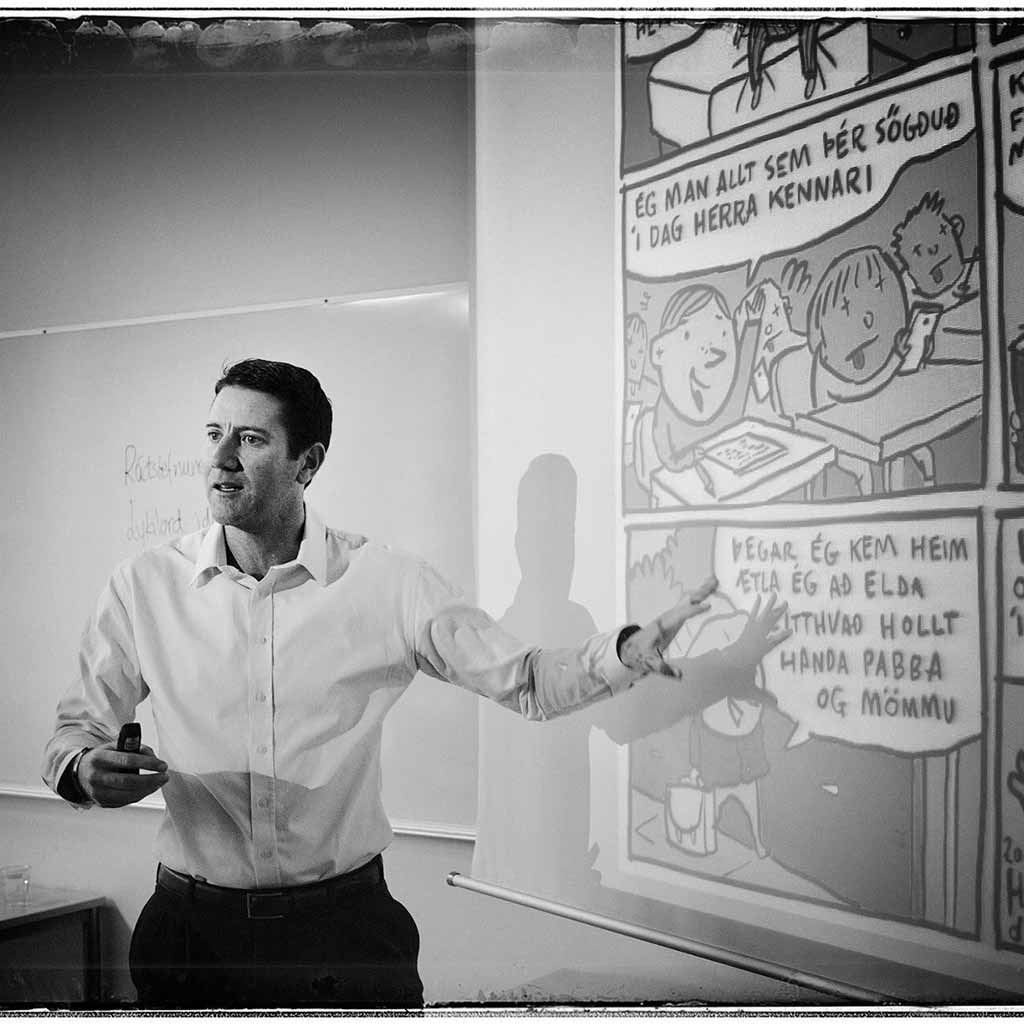 ESSAYS
ESSAYS

The International Congress for School Effectiveness and Improvement (ICSEI) 2018 will be held at NIE, Singapore from 8 to 12 January.
This year’s theme of “Deepening School Change for Scaling: Principles, Pathways & Partnerships” sets the stage for dialogue on the sustainability of change, translating and scaling research for meaningful impact in schools, and the different principles, pathways and partnerships necessary to inculcate resilience, lifelong learning, and 21st Century Competencies in students.
Leading up to this exciting event, keynote speakers Dr Alicia Grunow and Lucy Crehan share their perspectives on the transformation of current education systems and the importance of such changes.
Dr Alicia Grunow is a Senior Fellow at the Carnegie Foundation for the Advancement of Teaching, and Co-founder of the Improvement Collective.
Would you describe the characteristics of a well-established education system?
Well-established education systems have a clear sense of purpose that is articulated across the organisation. People there know what they are working towards and why. Care and attention are focused on figuring out how to make the various moving parts and pieces of the system add up to a coherent experience for the end user—our students. Systems become well-established through investments in distinct organisational capacities, including the ability to notice and investigate what isn’t working and disciplined ways of improving the system. A well-established system is something pursued in the day-to-day work of people throughout the organisation.
What are some key considerations for systematic change in education to be effective?
This indeed is the question that organises my professional life, and always leaves more to be expected. I will highlight 3 key considerations; first, we need to recognise the difference between ‘what’ and ‘how’. Our investments in educational research have largely focused on ‘what’ works. It isn’t the same as knowing ‘how’ to get an idea to work in diverse contexts and for the diverse students who make up our schools. Focusing on ‘how’ naturally leads to the engagement of front-line workers as active problem-solvers.
Too often, at least in the United States, teachers are thought of as receivers of knowledge instead of as knowledge producers. Yet they are the ones with the front-row seats to how ideas are actually played out in practice. This makes them perfectly positioned to develop innovative ideas and solve the key problems in the system.
Finally, we need to build improvement capability across our educational organisations; treat improvement not just as an aspiration, but as a skill. Currently we invest in educational expertise, i.e., knowledge of the core content areas and effective pedagogy, but not in improvement expertise. We need both to organise truly transformative change.
Well-established education systems can prove resistant to change. In this case, how should countries or governments be encouraged towards reformation of such systems?
I work out of an improvement science paradigm, and in that paradigm, the more your daily work is the object of change, the more you are involved in the change effort. This raises an interesting question about what levers that governments have at their disposal for spurring productive change. In my experience, mandating change from the outside has limited effect.
Governments can help to create environments that are more conducive for educational organisations to engage in improvement. They can draw attention to high-level goals and highlight places that are making progress towards those goals. They can also provide resources for educational organisations to build their improvement capability and to collaborate across organisational boundaries. Most importantly, they can become curious about how the ways in which they operate can affect the ability of educational organisations to engage in system improvements and remove such barriers.
Lucy Crehan is an International Education Consultant at the Education Development Trust, and author of Cleverlands, which recounts findings from her educational explorations.
What do you think needs to be considered in order for change in an education system to be effective?
For change to be effective, the leaders of the system are key. System leaders need to collaborate actively with educators, involve different stakeholders in the design process, and carefully plan and pilot any changes. It also important to evaluate the success of ongoing structures and processes through both quantitative and qualitative data, thus allowing system leaders to put measures in place to help steer the reform or change in the desired direction.
What are some challenges to effective reform and transformation of education systems?
Behaviour change is difficult to achieve in any setting. Often, education reform requires a behaviour change in teachers in order to achieve change in the learning of students. Where reforms usually fall short is in the failure to recognise the importance of teacher buy-in. This can be encouraged by collaborating with teacher unions in the planning of such reforms, considering the various challenges that teachers may face in implementation, and subsequently, having in place the support to help them overcome these difficulties, such as additional training or resources for teachers.
Another challenge occurs when reform only changes one part of the education system, while other parts continue to have a stronger influence or effect on student and teacher behaviour. For example, the introduction of training on how to enhance critical thinking in students will not take hold if the assessment system places high stakes for both teachers and students, and requires a different kind of learning. The various and different parts of the education system need to pull together in the same direction.
Drawing from your experience of exploratory visits to education systems all over the world, what qualities make an effective education system?
To answer this question is a lifetime’s work, but if I may offer some initial thoughts:
One; have a universal pre-school that exposes children to a rich educational and social environment. This is to ensure young children develop the necessary prerequisite skills before they begin formal schooling. Two; design the curriculum for mastery, allowing adequate time for the foundations of each subject and exploring key concepts through a number of different ways. Teachers should be given autonomy to design the context, not the content, of this learning in ways that best suit the students.
Three; have genuinely high expectations of all students and design the system based on the assumption that almost all students will access the same academic curriculum (as a minimum) up to age 15. Children can be supported to reach these high goals by providing additional small group support from experienced teachers to students who need it. Four; treat teachers as professionals. Teachers in training are expected to master a body of knowledge, e.g., general pedagogy, pedagogical content knowledge, child development, cognitive psychology, etc. They should also continually refine their use of this knowledge in the classroom, under the supervision of and in collaboration with colleagues. The concept of earned autonomy is the best way once teachers have demonstrated competence.





